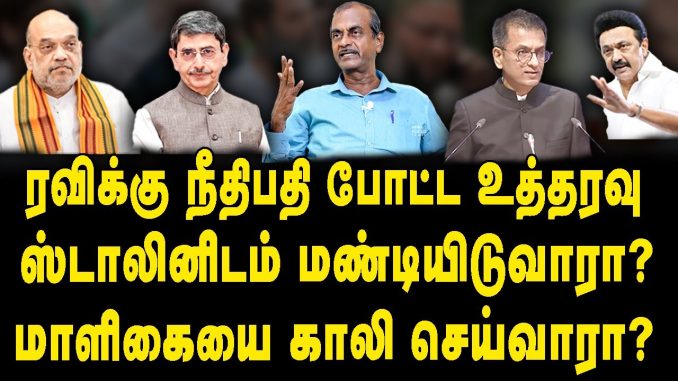
In a significant turn of events, Tamil Nadu Governor Ravi has come under fire for causing disruptions within the elected DMK government. The Supreme Court recently delivered a verdict that has curbed the governor’s actions, which were perceived as politically motivated and against the interests of the ruling government.
One of the contentious issues surrounding Governor Ravi’s actions was his repeated refusal to sign various important files, instead opting to send them back to the Tamil Nadu Legislative Assembly for review by the President. This move has ignited controversy and raised questions about the governor’s role and responsibilities in the state.
The Supreme Court did not mince words in its condemnation of Governor Ravi’s actions, likening them to a similar situation involving the Governor of Kerala. The Court decried these actions as contrary to democratic principles and considered them a dictatorial act that disregards the rule of law.
Chief Justice recorded a strong reprimand, warning that if Governor Ravi fails to carry out his duties appropriately, the Court may need to intervene in this matter. The situation has raised concerns about the separation of powers between the executive and judicial branches of government, and the need for adherence to democratic norms.
Senior journalist Priyan has shed light on the complex political background behind these recent events, providing valuable insights into the ongoing controversy surrounding Governor Ravi’s actions and their potential implications for Tamil Nadu’s governance.
As this story unfolds, it remains to be seen how Governor Ravi and the DMK government will respond to the Supreme Court’s verdict and whether this episode will have lasting repercussions on the political landscape of Tamil Nadu.
#TamilNaduGovernor #SupremeCourtVerdict #DMKGovernment #GovernorRavi

Leave a Reply